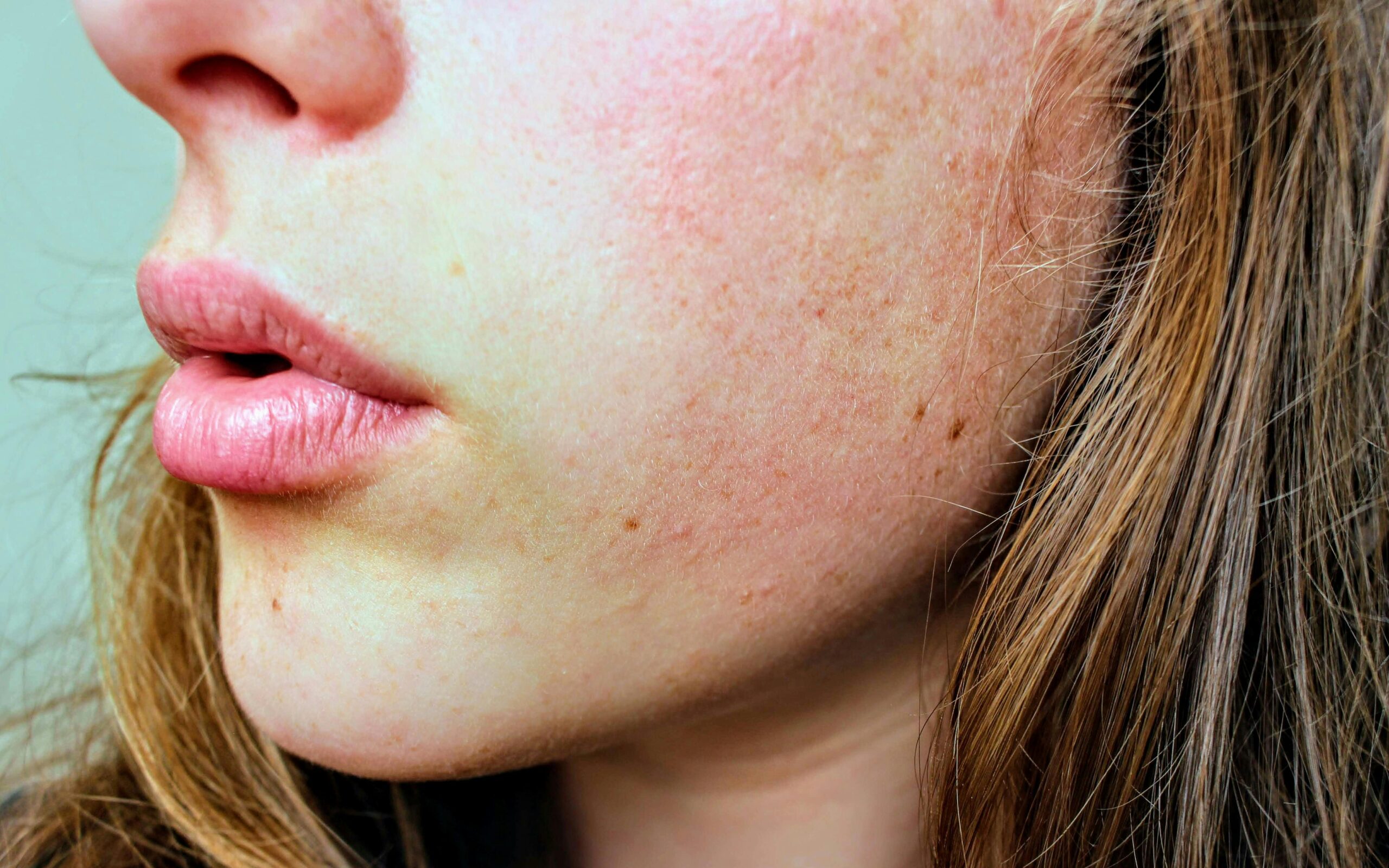Did you know that our skin often mirrors our overall health and well-being, reflecting the quality of our nutritional habits? Nutritional deficiencies can profoundly impact the appearance and health of our skin, leading to a variety of dermatological issues. From the dryness and roughness caused by a lack of vitamin A to the sagging and wrinkles resulting from insufficient vitamin C, our diet plays a crucial role in how our skin looks and feels. Understanding the connection between what we eat, and the health of our skin is essential for anyone looking to achieve a radiant complexion. In this blog post, we will explore the connection between nutritional deficiencies and skin problems, and offer practical tips for maintaining healthy, vibrant skin through better nutritional habits. By making informed dietary choices, you can support your skin’s health and enhance its natural appearance.
Vitamin A Deficiency and Skin Health: Vitamin A is an essential nutrient that is vital for the health of our skin. It supports the growth and repair of skin cells and helps maintain the integrity of the skin’s barrier. A deficiency of vitamin A can cause various skin issues, such as dryness, roughness, and scaliness, along with acne and more.
Vitamin C Deficiency and Collagen Production: Vitamin C is another crucial nutrient for skin health, as it plays a key role in collagen production. Collagen is a protein that provides the skin with structure and elasticity, and a deficiency in vitamin C can lead to weakened collagen fibers, resulting in skin that is prone to sagging, fine lines, and wrinkles.
Vitamin E Deficiency and Skin Aging: Vitamin E is an important antioxidant that helps to protect the skin from damage caused by free radicals, which are molecules that can accelerate the aging process. Other concerns linked to a deficiency in vitamin E include dry skin, itching, and eczema.
Zinc Deficiency and Wound Healing: Zinc is an essential mineral for the proper functioning of the immune system and is also crucial for wound healing. A zinc deficiency can lead to impaired wound healing and an increased susceptibility to infections, which can manifest as slow-healing wounds, ulcers, and skin lesions. It’s important to ensure that your diet includes sources of zinc to support the skin’s ability to heal and maintain its integrity.
Omega-3 Fatty Acid Deficiency and Inflammation: Omega-3 fatty acids are essential for the health of our skin and overall well-being. They can greatly assist in reducing inflammation in the body, which can worsen various dermatological conditions like acne, eczema, and psoriasis. A lack of omega-3 fatty acids can result in dry, flaky skin that is more susceptible to inflammation and other skin issues.
Maintaining Healthy Skin Through Good Nutrition:
Maintaining a healthy diet that is rich in essential nutrients is key to achieving and maintaining healthy skin. By changing your dietary habits, you can effectively support the appearance of your skin to create a glowing complexion. For those who want to obtain skin that is both healthy and radiant, consider incorporating the following additional tips into your daily routine:
Habits for maintaining healthy skin through better nutrition:
- Eat a variety of fruits and vegetables: Fruits and vegetables provide vitamins and minerals that are essential for healthy skin. Meeting your daily needs of assorted vitamins such as vitamin A, C, E, along with minerals like zinc can support optimal skin health. Aim to include a rainbow of colors in your diet to ensure you receive a wide range of nutrients. Leafy greens, berries, and citrus fruits are particularly beneficial.
- Incorporate healthy fats into your diet: Omega-3 fatty acids, found in fatty fish such as salmon and tuna, as well as in plant-based sources like flaxseeds, chia seeds, nuts, and avocados, play an important role in promoting skin health. These healthy fats help to reduce inflammation that can contribute to skin issues.
- Choose lean sources of protein: Protein is crucial for the growth and repair of skin cells. Opt for lean sources such as chicken, turkey, fish, and beans. Lean protein is better for skin health than protein from processed or high-fat sources. They help to promote skin cell turnover (the process of shedding old skin cells and replacing them with new ones) and overall skin structure. Incorporating a variety of high-quality protein sources can ensure a balanced intake of amino acids necessary for skin health.
- Limit processed foods and sugar: These items can contribute to body inflammation which may result in various dermatological issues. Common sources of processed foods and added sugars to watch out for include packaged snacks, frozen meals, cereals, sugary drinks, and processed meats. Reducing the intake of these foods can help maintain clearer and healthier skin.
- Stay hydrated: Drinking plenty of water is vital for maintaining supple and radiant-looking skin; aim for at least 8 glasses per day. Proper hydration supports the skin’s ability to stay moisturized and maintain its elasticity. This in turn can help minimize the appearance of fine lines and wrinkles. Water-rich fruits such as watermelon, cucumbers, and strawberries can also contribute to adequate hydration.
In conclusion, nutritional deficiencies can significantly impact the health and appearance of our skin, manifesting in a range of dermatological issues from dryness and roughness to acne and premature aging. However, by incorporating various nutrient-rich foods into our diet, we can support the skin’s health and reduce the risk of these concerns. Prioritizing a balanced diet rich in vitamins, minerals, healthy fats, and lean proteins can make a noticeable difference in maintaining a radiant and resilient complexion. If you have specific concerns about nutritional deficiencies or skin health, it is recommended to speak with a healthcare professional or registered dietitian who can provide tailored recommendations to meet your individual needs.
Sources:
https://lpi.oregonstate.edu/mic/health-disease/skin-health/vitamin-A
https://www.centrum.com/learn/articles/health-and-lifestyle-tips/complexion-protection/#:~:text=Vitamin%20A%20(Beta%2Dcarotene),properties%20help%20neutralize%20free%20radicals.
https://www.mountsinai.org/health-library/supplement/vitamin-a-retinol#:~:text=Vitamin%20A%20helps%20keep%20skin,Growthhttps://www.healthline.com/health/vitamin-a-for-skin
https://www.healthline.com/health/beauty-skin-care/vitamin-c-serum-benefits#:~:text=7.,hydroxylase%2C%20which%20provides%20structural%20strengthhttps://my.clevelandclinic.org/health/articles/23089-collagen
https://columbiaskinclinic.com/cosmetic/skin-collagen/#:~:text=The%20collagen%20fibers%20in%20the,skin%20its%20elasticity%20and%20strength.
https://ods.od.nih.gov/factsheets/Vitamine-HealthProfessional/
https://www.mayoclinic.org/drugs-supplements-vitamin-e/art-20364144
https://www.ncbi.nlm.nih.gov/pmc/articles/PMC3299230/
https://www.ncbi.nlm.nih.gov/pmc/articles/PMC5793244/
https://www.healthline.com/nutrition/zinc
https://www.healthdirect.gov.au/zinc-deficiency
https://pubmed.ncbi.nlm.nih.gov/12480795/
https://lpi.oregonstate.edu/mic/health-disease/skin-health/essential-fatty-acids
https://www.healthline.com/nutrition/omega-3-deficiency#1.-Skin-irritation-and-dryness
https://pubmed.ncbi.nlm.nih.gov/32761577/#:~:text=Amino%20acids%20are%20important%20nutrients,of%20an%20appropriate%20skin%20microbiome.
https://www.uchicagomedicine.org/forefront/gastrointestinal-articles/2020/september/what-foods-cause-or-reduce-inflammation
https://practicaldermatology.com/topics/other-dermatitis/diet-and-inflammation-in-dermatology/23008/
https://www.parkview.com/blog/the-importance-of-proper-skin-hydration#:~:text=Without%20hydration%2C%20your%20cells%20lose,%2C%20rough%2C%20flaky%20and%20dry.
https://cosmeticlaserskinsurgery.com/blog/health-benefits-of-protein-for-skin-hair-nail-growth/
1





0 Comments